Oceans
-
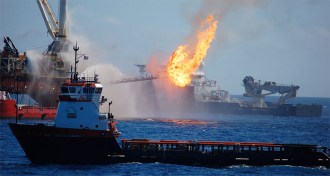 Environment
EnvironmentDeepwater Horizon oil spill caused months-long ‘dirty blizzard’
Pollution from the 2010 Deepwater Horizon oil spill accumulated on the seafloor for months after the leak was patched.
-
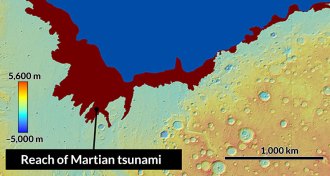 Oceans
OceansAncient tsunamis reshaped Mars’ landscape
Ancient tsunamis generated by meteorite impacts may have reshaped ocean coastlines on Mars.
-
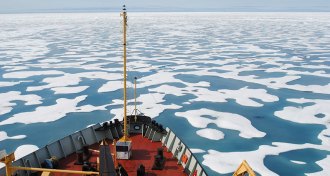 Oceans
OceansThe Arctic Ocean is about to get spicier
Variations in the saltiness and temperature of seawater of the same density, called spiciness, could increase as the Arctic Ocean warms.
-
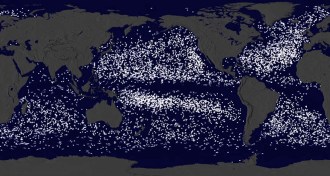 Oceans
OceansHere’s where 17,000 ocean research buoys ended up
A combined look at 35 years’ worth of ocean buoy movements reveals the currents that feed into ocean garbage patches.
-
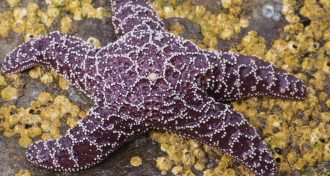 Animals
AnimalsCause of mass starfish die-offs is still a mystery
Sea stars off the U.S. west coast started dying off en masse in 2013. Scientists are still struggling to figure out the cause.
-
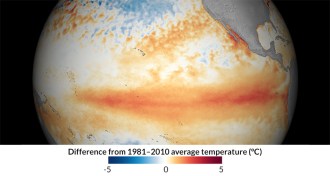 Climate
ClimateFizzled 2014 El Niño fired up ongoing monster El Niño
The ongoing El Niño, one of the strongest on record, got a heat boost from a 2014 event that failed due to unfavorable winds.
-
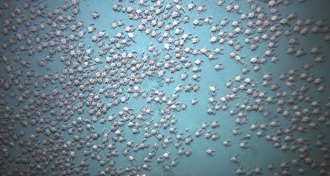 Animals
AnimalsScientists find a crab party deep in the ocean
A trip to check out the biodiversity off the coast of Panama revealed thousands of crabs swarming on the seafloor.
-
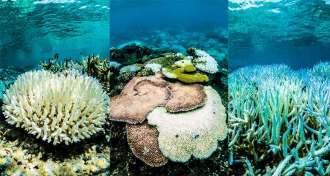 Ecosystems
EcosystemsHeat may outpace corals’ ability to cope
Corals may soon lose their ability to withstand warming waters.
-
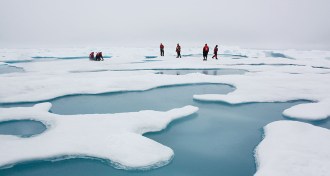 Climate
ClimateChanging climate: 10 years after ‘An Inconvenient Truth’
In the 10 years since "An Inconvenient Truth," climate researchers have made progress in predicting how rising temperatures will affect sea level, weather patterns and polar ice.
-
 Oceans
OceansReaders question ocean health
Ocean plastics, ant behavior, pollution solutions and more in reader feedback.
-
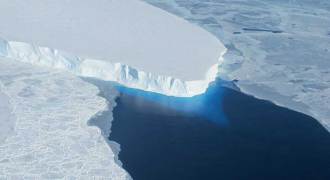 Climate
ClimateSea levels could rise twice as fast as previously predicted
Sea level rise from Antarctica’s melting ice could accelerate faster and sooner than previously thought.
-
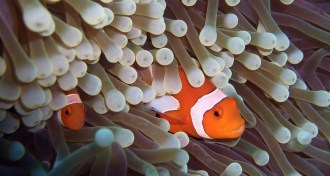 Animals
AnimalsIn the Coral Triangle, clownfish figured out how to share
In the Coral Triangle in Southeast Asia, an area of rich biodiversity, clownfish species often share anemones, a new study finds.